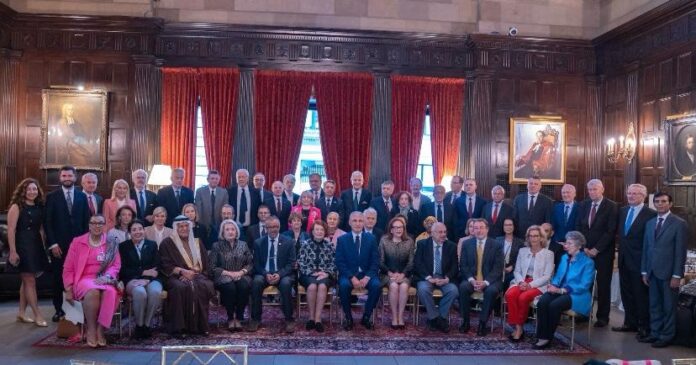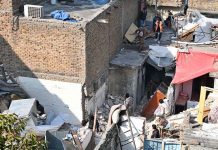Staff Report
ISLAMABAD: Executive Director, Sustainable Development Policy Institute (SDPI) and a member of COP29 International Advisory Committee, Dr. Abid Qaiyum Suleri has called for financing the “Pact of the Future” adopted by the world leaders at the Summit of the Future making it accessible to the developing countries.
Speaking at a side event on the “Trust and Global Governance, Climate Action: Linking the UN Summit of the Future with COP29” organized by the Nizami Ganjavi International Center on the advice of COP29 President-Designate at the sideline of the Summit, Dr Abid said that there is a need to turn human security as the focus of the UN Security Council while exercising veto powers, and to reform global governance and multilateral financial institutions in the interest of common global good, a news release on Thursday said.
He highlighted that the mistrust and lack of confidence of the member governments is impacting the global governance so under the ‘Pact of the Future’ the renewed commitments work develop a culture of working together to combat the climate change. While we are heading toward Baku for the COP29, the countries should come up with realistic climate commitments in terms of their Nationally Determined Commitments (NDCs).
Mukhtar Babayev COP29 President-Designate and Minister of Ecology and Natural Resources of the Republic of Azerbaijan has invited the International COP29 Committee members to deliberate upon the linkage of the COP29 with the ‘UN Summit of the Future’ where the world leaders have adopted a ‘Pact for the Future’ that includes a Global Digital Compact and a Declaration on Future Generations. This Pact is the culmination of a years-long process to adapt international cooperation to the realities of today and the challenges of tomorrow.
The hard work of implementation begins immediately.
Dr Suleri said that the adoption of the Pact demonstrates that countries are committed to an international system with the United Nations at its center.
Leaders set out a clear vision of a multilateralism that can deliver on its promises, is more representative of today’s world and draws on the engagement and expertise of governments, civil society and other key partners. He hoped that with this categorical pledge the issues around climate vulnerabilities and fragility of the countries bearing the brunt of climate change would be given a serious thought, especially in terms of climate finance and technology transfer so that the counties in the South can adapt better to the climate change impacts.
Dr Suleri said thought the Member States have expressed their strong recommitments to accelerate the implementation of the 2030 Agenda and of the 2023 SDG Summit Political Declaration through urgent and scaled-up action, policies and investments with the goal to end poverty and hunger and leave no one behind, their promises and pledges would not remain just the utterances; and their commitments would not go unfulfilled. The Pact also acknowledges the need for Member States to begin to consider how to advance sustainable development beyond 2030.
Dr Suleri said the side event organised by the President-designate of the COP29 hopes that linking of these commitments would materialise in terms of solid pledge for the climate finance which will be the key discourse at the COP29. On climate change, the Pact confirmed the need to keep global temperature rise to 1.5°C above pre-industrial levels, to transition away from fossil fuels in energy systems to achieve net-zero emissions in 2050 and promote disaster risk-informed approaches to sustainable development. This would be a step in the right direction if this commitment reflects clearly in the COP29 declartion as well.




